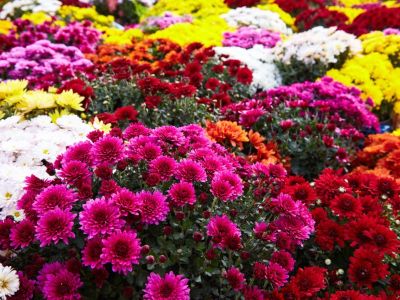September in the Southeast
Divide and cut back perennials. If beds were too crowded, this is an appropriate time to dig and divide. There is still plenty of time left for them to establish a root system in new beds before winter’s cold in some part of the south. Divide daylily, iris, and monkey grass. Deadhead those that may bloom again in fall, like coneflowers. Amend the soil before planting in areas that grew summer veggies as they likely took up much of the nutrients. Fertilize those that will bloom again this autumn, such as salvia and asters. Fertilize roses for the last time. Begin feeding those houseplants that are vacationing outdoors. This can continue through November, at which time feeding should cease. Many houseplants go dormant in winter. Stop pruning unless you’re removing dead wood or old blackberry canes. Tropical hibiscus may be lightly sheared and tidied up before you locate it inside in bright light for the winter. Don’t prune spring flowering shrubs, they have already set bloom. Your September gardening to-do list might include dealing with invasive weeds, using glyphosate or a mechanical (by hand) means. This is the best time to target bindweed, Japanese knotweed, and curly dock. Attempt to get rid of other invasive plants that are a problem in your garden as well.
Regional Garden Tasks: Planting
Plant peony roots and peony trees this month. Put in cool season garden vegetables before the end of the month like collards, cabbage, and broccoli. Use small plants that have time to mature before temperatures cool. Of course, those in more southern areas can plant longer, do so during the early part of September in Zones 7 and 8. You may choose and purchase those spring flowering bulbs that you’ll plant in fall, but don’t get them in the ground until soil temperatures are in the 60’s or cooler, likely in October. Warmer parts of the southeast may need to wait until November or December. These bulbs need a winter chill to bloom properly in spring. Southern gardening in September sadly reminds many of us that our growing seasons have ended for the year. Zone 9 and above can continue to plant many veggies that most of us consider summer growers. To them, we wish much success in your growing efforts. The rest of us are already looking forward to next year.
